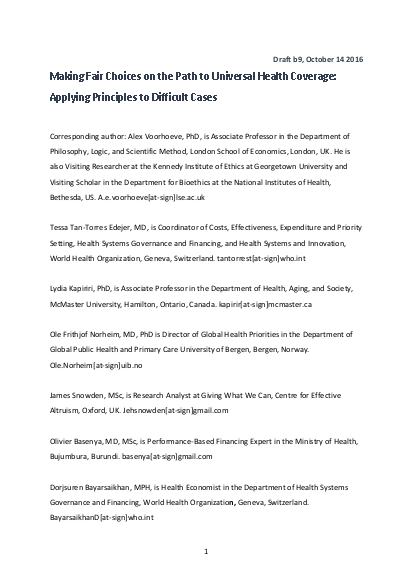
Progress towards Universal Health Coverage (UHC) requires a series of decisions, each involving challenging moral trade-offs. In a recent article in this journal, Dr. Margaret Chan, the WHO Director-General, endorsed the principles for making such decisions put forward by the WHO Consultative Group on Equity and UHC. These principles include maximizing population health, priority for the worse off, and shielding people from health-related financial risks. But how to apply these general principles in particular cases and how to adjudicate between them when their demands conflict? This paper by some members of the Consultative Group and a diverse group of health policy professionals addresses these questions. It considers three cases, each of which pertains to one of the three principal dimensions of progress towards UHC: which services to cover first, which populations to prioritize for coverage, and how to move from out-of-pocket expenditures to pre-payment with pooling of funds. While we make specific recommendations, our primary aim is to demonstrate the forms of empirical and moral reasoning involved in striking a fair balance between competing interests on the road to UHC.